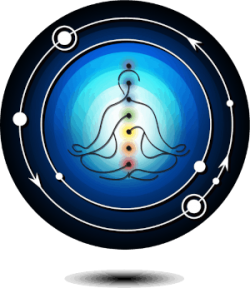Significance of Planetary transits on life
Your birth chart is like a snapshot of your personality. It can give you an idea of your moods, strengths, weaknesses, and actions based on where the planets are located in relation to the signs of the Zodiac. If you notice a change in your mood or behaviour, it could be due to another planet transiting one of your natal placements, causing a shift in energies.
Transits are the movement of planets through the sky, and they can significantly impact our lives. Understanding how they work and their effects is crucial for astrology enthusiasts.
Effects of planetary transits
Transits can significantly impact your life, both positive and negative. By understanding how to interpret the aspects of transits in your natal chart, you can gain insight into their potential effects.
Positive Effects of Transits: Transits can bring positive changes to your life, like increased energy levels, better relationships with others, or even unexpected luck. For instance, when Jupiter transits through your sign, it brings good fortune and opportunities for growth. It’s also linked to travel and learning new things.
Negative Effects of Transits: On the other hand, some transiting planets can bring challenges or obstacles that must be overcome. Saturn transiting through a sign often results in restrictions or delays in achieving goals due to its restrictive nature. Additionally, a Mars transit could lead to arguments or conflicts if not handled properly, owing to its aggressive energy.
To know more about your Planetary Kundali and its effects, login to www.astronidan.com or Sign in to https://web.astronidan.com/
What is Planetary Transit
Transits refer to the movement of planets through the 12 Houses of a horoscope. Each planet completes a full zodiac round, with some planets lingering for longer periods than others. For instance, Jupiter spends roughly one year in each sign, while Saturn may stay in a sign or House for about two-and-a-half years or more. Rahu, on the other hand, takes around 18 months in each sign or House. The Moon has a rapid transit plan, staying only for 2.5 days in one sign, while the Sun takes around 30 days per sign or House.
Understanding how transits works
Transits occur when a planet passes over the positions of your “natal planets” as they were at the time of your birth. For example, if Venus was in Capricorn when you were born, when another planet like Mercury moves through Capricorn and aligns with Venus’ position within 10 degrees, an astrologer would say that Mercury is transiting your “natal Venus.” This transit suggests a combination of Mercury’s communicative influence with Venus’ “let love in” type of energy. This is a classic example of communicating with loved ones, sharing your affections, and making pleasant social connections. In other words, since Mercury is moving through the point in your chart that’s all about love, you may find yourself thinking more about affection and expressing your feelings more openly.
Transits can have different effects on your life, depending on the planetary placements being transited. Sometimes, they may only change the general atmosphere of your day-to-day life. However, if a planet is transiting your Sun or Moon, you will likely feel its impact across various areas of your life. For instance, during a Uranus transit, you may attract people with unconventional qualities who disrupt the status quo and open up new and exciting possibilities. In essence, transits can influence the type of people you meet and the things you attract.
Timing Matters: Understanding the Duration of a Transit
It is crucial to note that transiting planets behave differently and have varying effects. The “inner planets” like the Moon, Sun, Mercury, Venus, and Mars move through the zodiac signs relatively quickly, leading to shorter transits and effects. In contrast, the “outer planets”, such as Jupiter, Saturn, Uranus, Neptune, and Pluto, have slower movements, resulting in longer transits and more prolonged effects on natal placements.
Transits can be divided into two categories: short-term and long-term. Short-term transits last for a few days or weeks, while long-term transits may last for months or even years.
Short-term transits usually refer to planetary aspects that occur within a few days or weeks of each other. They often have more immediate impacts on our lives than longer-term transits do, as they represent changes in energy that come quickly and then pass just as quickly. Examples of short-term transits include Mercury retrograde periods, which generally only last for three weeks, lunar eclipses that typically happen once every six months, and solar eclipses that usually take place twice a year.
Long-term transits tend to bring more lasting changes in our lives since they span over several months or even years before their effects dissipate completely. Examples of long-term transits include Saturn’s return cycle, which occurs approximately every 29 years, Uranus’s 84-year orbit around the Sun, Neptune’s 165-year journey through the zodiac signs, and Pluto’s 248-year orbit around the Sun. All these planets move slowly through the sky relative to other planets like Mercury or Venus, meaning their influences will linger much longer than those from faster-moving bodies such as Mars or Jupiter.
Retrograde motion is a phenomenon where a planet appears to move backward in its orbit. This occurs due to the position of Earth relative to the planet in question at any given time. All planets except Earth experience retrograde motion. This motion affects the duration of certain planetary influences on us. When a planet is retrograde, it takes longer to complete its orbit and leave our charts entirely. If you were born during a period when Mars was retrograding, you would experience its effects for a longer duration than if it was direct at birth. The influence could potentially last until Mars completes its full cycle and leaves your chart.
Timing is crucial in interpreting the effects of a transit. Understanding the duration of a transit is essential to make the most out of your cycle. With this knowledge, you can take advantage of positive transits and minimize the impact of negative ones, allowing you to get the best results from your astrological journey.
To know more about the timing of Planetary transits and how they can impact you, login to www.astronidan.com or Sign in to https://web.astronidan.com/
Why is it essential to understand Planetary Transits
It is important to keep track of your transits if you want to understand the influence of planets on your daily life. One way to find out about upcoming transits is to look up the AstroNidan website for all the movements of planets in the upcoming months and years.
To take advantage of your upcoming energies and fortunes, the best approach to prepare for upcoming transits is to understand what type of energies they will bring into your life so you can make informed decisions about how you want to use them positively instead of letting them take control over you without any awareness on your part. Knowing which areas of life will be affected by each transit is critical. This knowledge allows us to plan accordingly and take advantage of all potential benefits that come our way during these times.



